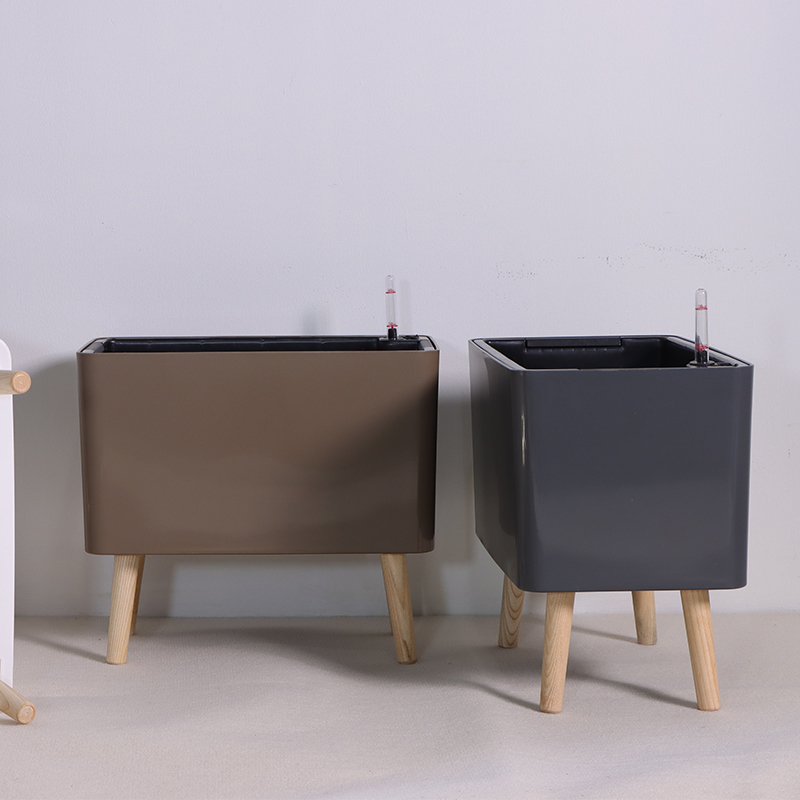In the garden industry, building strong partnerships with distributors is a key factor for suppliers and manufacturers aiming to expand their reach and serve customers efficiently. Distributors act as valuable intermediaries, connecting producers with retailers, landscapers, and end consumers. For companies offering products such as simple painted flower pots, Extra Large Planters For Outside, and eco friendly indoor plant pots, collaborating effectively with distributors can unlock new markets and streamline supply chains.

One important aspect of partnering with distributors in the garden industry is understanding the specific needs of their customer base. Distributors who specialize in garden products usually cater to a range of clients, from home gardeners seeking simple painted flower pots to commercial clients needing Extra Large Planters For Outside. Aligning product offerings with the preferences of these varied customers helps create smoother sales channels and ensures steady demand.
The appeal of eco friendly indoor plant pots has been growing steadily in recent years. More consumers are paying attention to sustainability and seeking products that have less environmental impact. When suppliers work closely with distributors, they can better forecast demand for these eco-conscious products and adjust inventory accordingly. This mutual understanding reduces overstocking and supports a more responsive supply system that benefits both parties.
Communication plays a critical role in successful distributor partnerships. Regular updates on product availability, pricing changes, and promotional campaigns help distributors plan their purchases and marketing efforts. For instance, a supplier that provides timely information about new lines of simple painted flower pots or seasonal promotions on Extra Large Planters For Outside enables distributors to capitalize on sales opportunities. Sharing marketing materials and product knowledge can also empower distributors’ sales teams to educate retailers and customers effectively.
Moreover, logistics and delivery management are essential components of distributor relationships. Garden products often require careful handling due to their size, fragility, or material composition. Extra Large Planters For Outside demand require particular attention during transport to prevent damage. Distributors rely on suppliers to coordinate reliable shipping schedules and packaging standards that protect products throughout the supply chain. Suppliers who demonstrate flexibility in accommodating distributor needs around shipping and storage are better positioned to foster lasting partnerships.
Pricing strategies also influence distributor collaborations. Offering competitive pricing structures or volume discounts on popular items like eco friendly indoor plant pots can encourage distributors to prioritize these products. Transparent pricing and clear terms support trust and reduce misunderstandings. Additionally, suppliers can work with distributors to identify pricing adjustments based on market trends or regional preferences, making products more accessible to different customer segments.
Training and education are valuable tools in distributor partnerships within the garden industry. Suppliers that provide detailed product information, care instructions, and trend insights about simple painted flower pots or Extra Large Planters For Outside help distributors become knowledgeable advocates. This expertise benefits retailers and customers alike, enhancing overall satisfaction with the products. Training sessions, either in person or through digital channels, build distributor confidence and strengthen their ability to sell effectively.
Another advantage of partnering with distributors is gaining market feedback. Distributors interact directly with retailers and customers, receiving insights about product performance, design preferences, and emerging demands. Sharing this feedback with suppliers enables continuous product improvement and innovation. For example, feedback might reveal a rising interest in certain styles of eco friendly indoor plant pots or the need for new sizes of Extra Large Planters For Outside. This collaboration fosters a responsive approach that keeps products relevant and appealing.
Sustainability is becoming a significant consideration across the garden industry, and distributor partnerships play a part in promoting responsible practices. When suppliers offer eco friendly indoor plant pots, distributors can position these items to customers focused on environmental impact. Together, they can explore opportunities to reduce packaging waste or implement recycling programs. Collaborative efforts in sustainability can enhance brand reputation and meet growing consumer expectations.
While establishing distributor relationships, it is also important for suppliers to consider geographic reach and market specialization. Some distributors may serve urban areas where demand for simple painted flower pots is higher due to indoor gardening trends, while others may focus on suburban or rural markets that prefer Extra Large Planters For Outside for landscaping. Understanding these nuances allows suppliers to tailor their offerings and support distributors with appropriate product assortments and marketing materials.
Ultimately, the success of partnering with distributors in the garden industry depends on mutual respect, clear communication, and a shared commitment to customer satisfaction. Suppliers that provide reliable access to quality products such as simple painted flower pots, Extra Large Planters For Outside, and eco friendly indoor plant pots help distributors build trust with their clients. In turn, distributors offer suppliers valuable channels to broaden their market presence and improve supply chain efficiency.
By maintaining open dialogue and responding to market needs together, suppliers and distributors create a collaborative environment where both can thrive. The garden industry continues to evolve with changing consumer preferences and sustainability priorities, and strong distributor partnerships are essential for adapting to these shifts. For manufacturers and suppliers, investing time and resources into building and nurturing these relationships ensures ongoing growth and a solid foundation for future opportunities.

 English
English 日本語
日本語 Español
Español Deutsch
Deutsch عربى
عربى
